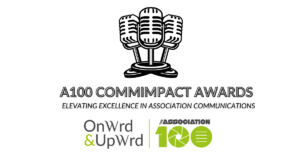Advancing Diversity, Equity, Inclusion and Accessibility at ASCE: Insights from Damita Snow, CAE, ENV SP
The American Society of Civil Engineers (ASCE) is leading the charge in advancing Diversity, Equity, Inclusion and Accessibility (DEIA) across its global organization. With more than 160,000 members in 177 countries, ASCE plays a pivotal role in shaping the civil engineering profession worldwide. At the helm of the DEIA initiatives within ASCE’s Publications and Standards Division is Damita Snow, Director of Accessibility & Diversity, Equity, and Inclusion Strategy, Publications and Standards.
Damita has been instrumental in embedding DEIA principles into the fabric of ASCE’s operations, ensuring that these values are not simply performative, but truly integrated into every aspect of the Publications and Standards ecosystem. In a recent conversation, Damita shared key insights into the strategies that have driven ASCE’s DEIA success, the challenges they have encountered and actionable advice for other associations looking to enhance their DEIA efforts.
Leadership Commitment and Strategic Integration
One of the driving factors behind ASCE’s successful DEIA initiatives is the strong commitment from leadership. “When you have leadership invested in these principles, it is certainly a part of the fabric and the work that we do within the organization,” Damita explained. ASCE’s DEIA strategy is not an afterthought; it is embedded within their overall organizational mission to “lead the civil engineering profession to sustainably advance and protect the health, safety, and welfare of all.” This alignment ensures that DEIA is not seen as a separate initiative, but as an integral part of the organization’s core values and operations.
In ASCE’s Publications and Standards Division, DEIA is a core element of the strategic plan. Damita highlighted that all projects and policies are viewed through a DEIA lens, ensuring that diversity, equity, inclusion and accessibility are considered in every decision made. This intentional focus helps to make certain that all aspects of their work, from content creation to member outreach, reflect the diverse perspectives of ASCE’s global community.
Key DEIA Initiatives in Publications and Standards
Damita shared several impactful DEIA initiatives within the Publications and Standards division. One notable example is ASCE’s post-publication name change policy, introduced in 2021. This policy allows authors to request name changes for published works, no questions asked, ensuring that individuals who may have changed their names for personal or professional reasons can have their work properly attributed. “This is an example of how we are fostering inclusivity and ensuring that all members feel respected and acknowledged,” Damita noted.
Another key initiative is the creation of the Publications and Standards Diversity, Equity, Inclusion and Accessibility Committee, which meets regularly to drive DEIA efforts within the division. The committee has hosted book clubs that focus on important topics such as racism in the workplace and identity-related aggressions, commonly known as microaggressions. These book clubs have fostered meaningful dialogue within the division and have helped to create a more inclusive environment.
Damita also emphasized ASCE’s support for the United Nations Sustainable Development Goals (SDGs), particularly in relation to gender equality and sustainability. ASCE has created special collections of journals that focus on these areas, recognizing that cultural diversity and innovation go hand in hand. “Cultural diversity drives innovation,” Damita explained. “When individuals feel included and their ideas are heard, their contributions can significantly enhance sustainability efforts and improve outcomes for everyone.”
Accessibility as a Key Focus
Accessibility is another area where ASCE has made significant strides. Damita discussed a recent accessibility audit conducted within ASCE’s Publications and Standards Division, which involved testing their content platform with various user groups, including people with disabilities. The goal was to identify and eliminate any barriers to accessing ASCE’s vast library of technical content. “It’s essential that our content is accessible to everyone, regardless of their abilities,” Damita said. “We’ve made changes to our navigation, updated terminology, and ensured our site is compatible with screen readers to improve accessibility for all.”
ASCE is also launching new initiatives such as translated abstracts in multiple languages, allowing authors to submit abstracts in their native languages, with English translations available. This undertaking is part of ASCE’s broader effort to create a more inclusive global community and ensure that language barriers do not prevent individuals from contributing to the civil engineering field.
Challenges and Overcoming Obstacles
While ASCE has made impressive progress in its DEIA efforts, Damita acknowledged that challenges still exist. “There have been some challenges along the way, especially when it comes to implementing new ideas such as our name pronunciation recordings for authors,” she shared. ASCE initially explored printing phonetic spellings of names but found that audio recordings would provide a more accurate and user-friendly solution. This required close collaboration with their vendor to bring the idea to life, and the feature is set to launch later this year.
Despite these challenges, Damita emphasized the importance of persistence. “Mistakes are going to happen, but keep moving forward. Learn from them, and continue doing the work,” she advised. This philosophy has been key to ASCE’s success in driving meaningful change.
Advice for Other Associations
For other associations looking to enhance their DEIA efforts, Damita offered practical advice: “Assess where you are, and assess again. The data will allow you to make informed decisions.” She also encouraged organizations not to be deterred by budget constraints. “There are many free resources available, and small steps can still make a big impact,” she said. In addition, Damita stressed the importance of collaboration, both internally and with external partners, to drive progress.
Ultimately, Damita’s work at ASCE exemplifies how associations can create lasting change by embedding DEIA principles into every aspect of their operations. Her advice serves as a valuable roadmap for other association professionals looking to create more inclusive and equitable environments.
Leadership, Commitment and Strategic Planning
Through leadership commitment, strategic planning, and a relentless focus on inclusivity, ASCE is setting a powerful example for other associations. Damita Snow’s insights and initiatives are proof that when DEIA is prioritized and woven into an organization’s mission, it leads to innovation, growth, and a more vibrant professional community.




